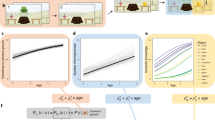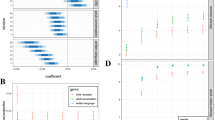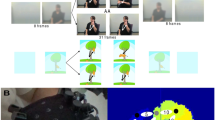Abstract
ONCE children have begun to learn their native tongue, they acquire vocabulary at a remarkable rate. An intelligent 6-yr-old is able to recognise 13,000 words, and more than double that number 2 yr later1. According to orthodox linguistic theory, the learning of verbs and other relational terms ought to be difficult because, in addition to their meaning, they have ‘selectional restrictions’, which constrain the noun phrases that can occur with them2. A child must learn, for example, both the meaning of the verb ‘fly’ and the fact that it takes subjects which are restricted to denoting moveable objects. This linguistic theory has, however, been criticised, and it may be a misleading basis for a model of language acquisition since meaning and selectional restrictions can hardly be independent3. In particular, the subjects and objects that occur with a verb might help the child to infer its meaning, and likewise the meaning of a verb might help to define its possible subjects and objects.
This is a preview of subscription content, access via your institution
Access options
Subscribe to this journal
Receive 51 print issues and online access
$199.00 per year
only $3.90 per issue
Buy this article
- Purchase on Springer Link
- Instant access to full article PDF
Prices may be subject to local taxes which are calculated during checkout
Similar content being viewed by others
References
Templin, M. C. Certain Language Skills in Children: Their Development and Inter-relationships (University of Minnesota Press, Minneapolis, 1957).
Katz, J. J. & Fodor, J. A. Language 39, 170–210 (1963).
Savin, H. B. Cognition 2, 213–238 (1973).
Jarvella, R. & Sinnott, J. J. verb. Learn. verb. Beh. 11, 47–53 (1972).
Howe, H. E. & Hillman, D. J. verb. Learn. verb. Beh. 12, 132–139 (1973).
Noble, C. E. Psychol. Rep. 8, 487–521 (1961).
Miller, G. A. & Johnson-Laird, P. N. Language and Perception (Cambridge University Press, London, 1976).
Chomsky, C. The Acquisition of Syntax in Children from 5 to 10. (MIT, Cambridge, Massachusetts, 1969).
Author information
Authors and Affiliations
Rights and permissions
About this article
Cite this article
WYKES, T., JOHNSON-LAIRD, P. How do children learn the meanings of verbs?. Nature 268, 326–327 (1977). https://doi.org/10.1038/268326a0
Received:
Accepted:
Issue Date:
DOI: https://doi.org/10.1038/268326a0
Comments
By submitting a comment you agree to abide by our Terms and Community Guidelines. If you find something abusive or that does not comply with our terms or guidelines please flag it as inappropriate.



